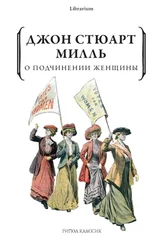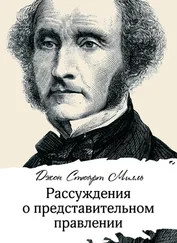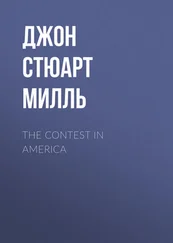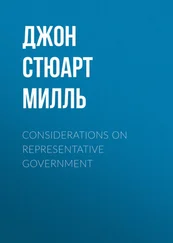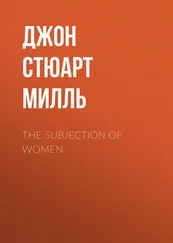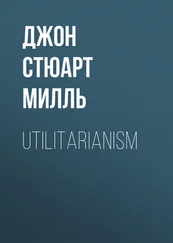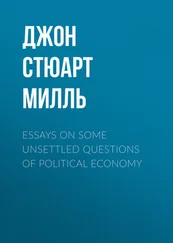Джон Милль - Autobiography
Здесь есть возможность читать онлайн «Джон Милль - Autobiography» — ознакомительный отрывок электронной книги совершенно бесплатно, а после прочтения отрывка купить полную версию. В некоторых случаях можно слушать аудио, скачать через торрент в формате fb2 и присутствует краткое содержание. Жанр: Философия, literature_19, foreign_antique, foreign_prose, на английском языке. Описание произведения, (предисловие) а так же отзывы посетителей доступны на портале библиотеки ЛибКат.
- Название:Autobiography
- Автор:
- Жанр:
- Год:неизвестен
- ISBN:нет данных
- Рейтинг книги:4 / 5. Голосов: 1
-
Избранное:Добавить в избранное
- Отзывы:
-
Ваша оценка:
- 80
- 1
- 2
- 3
- 4
- 5
Autobiography: краткое содержание, описание и аннотация
Предлагаем к чтению аннотацию, описание, краткое содержание или предисловие (зависит от того, что написал сам автор книги «Autobiography»). Если вы не нашли необходимую информацию о книге — напишите в комментариях, мы постараемся отыскать её.
Autobiography — читать онлайн ознакомительный отрывок
Ниже представлен текст книги, разбитый по страницам. Система сохранения места последней прочитанной страницы, позволяет с удобством читать онлайн бесплатно книгу «Autobiography», без необходимости каждый раз заново искать на чём Вы остановились. Поставьте закладку, и сможете в любой момент перейти на страницу, на которой закончили чтение.
Интервал:
Закладка:
During the winter of 1821-2, Mr. John Austin, with whom at the time of my visit to France my father had but lately become acquainted, kindly allowed me to read Roman law with him. My father, notwithstanding his abhorrence of the chaos of barbarism called English Law, had turned his thoughts towards the bar as on the whole less ineligible for me than any other profession: and these readings with Mr. Austin, who had made Bentham's best ideas his own, and added much to them from other sources and from his own mind, were not only a valuable introduction to legal studies, but an important portion of general education. With Mr. Austin I read Heineccius on the Institutes, his Roman Antiquities , and part of his exposition of the Pandects; to which was added a considerable portion of Blackstone. It was at the commencement of these studies that my father, as a needful accompaniment to them, put into my hands Bentham's principal speculations, as interpreted to the Continent, and indeed to all the world, by Dumont, in the Traité de Législation . The reading of this book was an epoch in my life; one of the turning points in my mental history.
My previous education had been, in a certain sense, already a course of Benthamism. The Benthamic standard of "the greatest happiness" was that which I had always been taught to apply; I was even familiar with an abstract discussion of it, forming an episode in an unpublished dialogue on Government, written by my father on the Platonic model. Yet in the first pages of Bentham it burst upon me with all the force of novelty. What thus impressed me was the chapter in which Bentham passed judgment on the common modes of reasoning in morals and legislation, deduced from phrases like "law of nature," "right reason," "the moral sense," "natural rectitude," and the like, and characterized them as dogmatism in disguise, imposing its sentiments upon others under cover of sounding expressions which convey no reason for the sentiment, but set up the sentiment as its own reason. It had not struck me before, that Bentham's principle put an end to all this. The feeling rushed upon me, that all previous moralists were superseded, and that here indeed was the commencement of a new era in thought. This impression was strengthened by the manner in which Bentham put into scientific form the application of the happiness principle to the morality of actions, by analysing the various classes and orders of their consequences. But what struck me at that time most of all, was the Classification of Offences, which is much more clear, compact, and imposing in Dumont's rédaction than in the original work of Bentham from which it was taken. Logic and the dialectics of Plato, which had formed so large a part of my previous training, had given me a strong relish for accurate classification. This taste had been strengthened and enlightened by the study of botany, on the principles of what is called the Natural Method, which I had taken up with great zeal, though only as an amusement, during my stay in France; and when I found scientific classification applied to the great and complex subject of Punishable Acts, under the guidance of the ethical principle of Pleasurable and Painful Consequences, followed out in the method of detail introduced into these subjects by Bentham, I felt taken up to an eminence from which I could survey a vast mental domain, and see stretching out into the distance intellectual results beyond all computation. As I proceeded further, there seemed to be added to this intellectual clearness, the most inspiring prospects of practical improvement in human affairs. To Bentham's general view of the construction of a body of law I was not altogether a stranger, having read with attention that admirable compendium, my father's article on Jurisprudence: but I had read it with little profit, and scarcely any interest, no doubt from its extremely general and abstract character, and also because it concerned the form more than the substance of the corpus juris , the logic rather than the ethics of law. But Bentham's subject was Legislation, of which Jurisprudence is only the formal part: and at every page he seemed to open a clearer and broader conception of what human opinions and institutions ought to be, how they might be made what they ought to be, and how far removed from it they now are. When I laid down the last volume of the Traité , I had become a different being. The "principle of utility," understood as Bentham understood it, and applied in the manner in which he applied it through these three volumes, fell exactly into its place as the keystone which held together the detached and fragmentary component parts of my knowledge and beliefs. It gave unity to my conceptions of things. I now had opinions; a creed, a doctrine, a philosophy; in one among the best senses of the word, a religion; the inculcation and diffusion of which could be made the principal outward purpose of a life. And I had a grand conception laid before me of changes to be effected in the condition of mankind through that doctrine. The Traité de Legislation wound up with what was to me a most impressive picture of human life as it would be made by such opinions and such laws as were recommended in the treatise. The anticipations of practicable improvement were studiously moderate, deprecating and discountenancing as reveries of vague enthusiasm many things which will one day seem so natural to human beings, that injustice will probably be done to those who once thought them chimerical. But, in my state of mind, this appearance of superiority to illusion added to the effect which Bentham's doctrines produced on me, by heightening the impression of mental power, and the vista of improvement which he did open was sufficiently large and brilliant to light up my life, as well as to give a definite shape to my aspirations.
After this I read, from time to time, the most important of the other works of Bentham which had then seen the light, either as written by himself or as edited by Dumont. This was my private reading: while, under my father's direction, my studies were carried into the higher branches of analytic psychology. I now read Locke's Essay , and wrote out an account of it, consisting of a complete abstract of every chapter, with such remarks as occurred to me; which was read by, or (I think) to, my father, and discussed throughout. I performed the same process with Helvetius de L'Esprit , which I read of my own choice. This preparation of abstracts, subject to my father's censorship, was of great service to me, by compelling precision in conceiving and expressing psychological doctrines, whether accepted as truths or only regarded as the opinion of others. After Helvetius, my father made me study what he deemed the really master-production in the philosophy of mind, Hartley's Observations on Man . This book, though it did not, like the Traité de Législation , give a new colour to my existence, made a very similar impression on me in regard to its immediate subject. Hartley's explanation, incomplete as in many points it is, of the more complex mental phenomena by the law of association, commended itself to me at once as a real analysis, and made me feel by contrast the insufficiency of the merely verbal generalizations of Condillac, and even of the instructive gropings and feelings about for psychological explanations, of Locke. It was at this very time that my father commenced writing his Analysis of the Mind, which carried Hartley's mode of explaining the mental phenomena to so much greater length and depth. He could only command the concentration of thought necessary for this work, during the complete leisure of his holiday for a month or six weeks annually: and he commenced it in the summer of 1822, in the first holiday he passed at Dorking; in which neighbourhood, from that time to the end of his life, with the exception of two years, he lived, as far as his official duties permitted, for six months of every year. He worked at the Analysis during several successive vacations, up to the year 1829, when it was published, and allowed me to read the manuscript, portion by portion, as it advanced. The other principal English writers on mental philosophy I read as I felt inclined, particularly Berkeley, Hume's Essays , Reid, Dugald Stewart and Brown on Cause and Effect. Brown's Lectures I did not read until two or three years later, nor at that time had my father himself read them.
Читать дальшеИнтервал:
Закладка:
Похожие книги на «Autobiography»
Представляем Вашему вниманию похожие книги на «Autobiography» списком для выбора. Мы отобрали схожую по названию и смыслу литературу в надежде предоставить читателям больше вариантов отыскать новые, интересные, ещё непрочитанные произведения.
Обсуждение, отзывы о книге «Autobiography» и просто собственные мнения читателей. Оставьте ваши комментарии, напишите, что Вы думаете о произведении, его смысле или главных героях. Укажите что конкретно понравилось, а что нет, и почему Вы так считаете.


